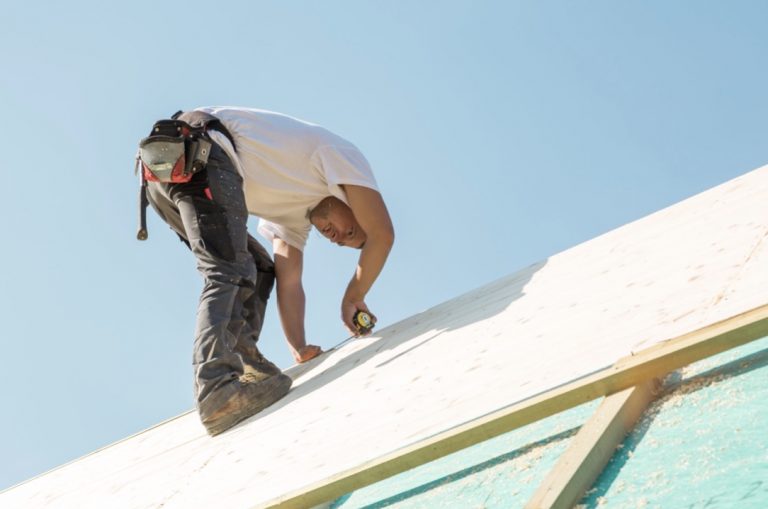We all know that climbing up a ladder can be hazardous just by virtue of being higher up and more at risk of a fall. However, you may not know that roofing is actually one of the most dangerous construction jobs and that the occupation has a fatality rate of 38.7 per 100,000 workers.
Although this occupation can be extremely dangerous, there are thankfully a number of safety procedures, steps, and best practices which every roofer can adhere to – whether they are a professional roofer or a DIY roofer. Keep reading to learn more about this profession and how roofers can stay safe and protect themselves.
The dangers of roofing
The obvious danger of roofing is falling off a roof or falling off a ladder. Although some of the injuries are minor and involve scrapes and bruises, it is possible to die or suffer debilitating injuries as a result of a fall from just six feet off the ground.
Aside from the falls, roofers are at risk from burns caused by tars and corrosive chemicals, the possibility of electrocution from exposed power lines, and falling debris and waste. Roofers are also exposed to the elements – which means that lightning strikes, heat stroke, and hypothermia are concerns. In warm, sunny climates, roofers need to take regular breaks for proper hydration, and they need to wear a heavy-duty form of sunscreen in order to protect themselves from harmful UV rays.
The importance of quality insurance
As a roofer, having the correct type of insurance is essential. The industry can be dangerous, and you never know if a worker will get hurt during a job. A hammer might fall through a window light, or a client will trip over a power cord. For an independent roofer or roofing company, having the right insurance can mean the difference between returning to work after an injury, and having the business go bankrupt.
Next Insurance provides insurance plans which are tailor-made for the roofing industry and provide protection in case of accidents while roofing. The plans are also tailored to meet your business’ needs and wants as every company has its own unique requirements. Next Insurance provides cover for small businesses and individual contractors and they understand that paperwork is the last thing that a small business needs, so when you take out an insurance policy with Next Insurance, you will enjoy the benefits of an easy, streamlined process and support from an easy-to-use digital platform.
Safety protocols and best practices
There are a range of different safety protocols and procedures which roofers must follow. One of the most important aspects of safety is having the correct PPE, including harnesses, shoes, pants, gloves, ear and eye protection, and hard hats. Employees should also be trained to check their PPE before use and store their equipment in a clean, dry place so that it can last longer.
Depending on the types of jobs taken, roofers will also need to be trained in how to safely work with crane and derricks along with harnesses and rigging. Roofing can also involve damage to the respiratory system as a result of the types of chemicals and corrosive agents which are used when roofing. As a result, roofers need to use respirators and also undergo training for handling and working with dangerous chemicals. Finally, roofers will also need to learn how to work with, clean, and store their tools and equipment including both handheld tools and power tools.
Safety culture and climate
You can have all of the best safety procedures and PPE in the world, but if your company does not have a safety culture, then you might as well not institute any safety measures at all. Safety needs to be a primary concern for everyone in the company, from the managers to the boss to the new hires who are being trained, otherwise safety procedures can quickly fall by the wayside and be considered unnecessary complications which only the sticklers follow.
Everyone on the team from the top down needs to promote a culture of safety, and also institute a zero-tolerance policy for breaking safety procedures. You can create a safety culture by emphasizing health and safety during training for new employees and maintaining a zero-tolerance policy when someone breaks safety policies. The United Union of Roofers, Waterproofers, & Allied Workers also produces regular reports on the best ways to maintain health and safety in the industry.


0 Comments